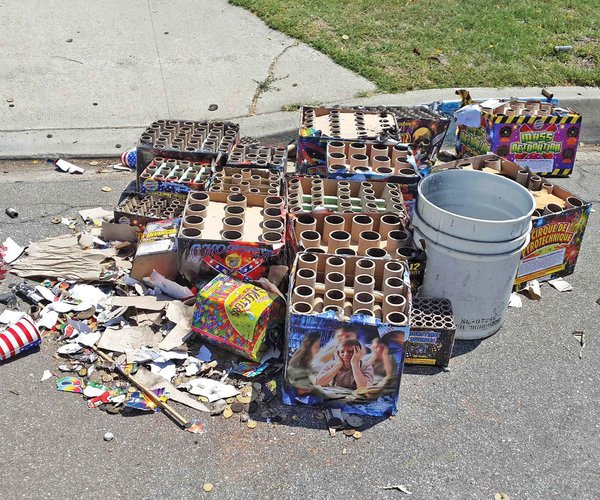A small manufacturing company employing about 35 employees is now operating in Ceres, thanks in part to the city of Ceres which assisted in streamlining the permit process.
Last fall, U.S. Die Services (USDS) transformed an empty warehouse of 18,000 square feet into offices and a manufacturing floor filled with close to $1 million in equipment to produce dies.
USDS was formed in June when Craftsman Cutting Dies - which has operated in Southern California for about 30 years - bought out U.S. Steel Rule Dies (USSRD) and changed its name. Craftsman had facilities in Arizona and Fresno and took over USSRD owned plants in Turlock and Salinas. After the Turlock building was sold from underneath them, company president Thomas Hughes tried unsuccessfully to find a new home in Turlock. An agent found the Ceres building empty and available on Rockefeller Drive within a stone's throw from Highway 99 traffic.
Steve Hallam, the city's economic development director, jumped into action when he learned that Hughes wanted to fill a vacant building in Ceres. Hughes had only two months to make the switch from Turlock - a process which ordinarily would take four to six months.
"Steve was a huge help once we got here," said Hughes. "I needed some help to get the processes done quicker with planning and all that stuff and that's where Steve was a big help making phone calls and probably twisting some arms to make sure our process was faster."
Hallam also helped with the building inspector. The city contracts with the county to perform building inspections.
"It (building inspection) wasn't terrible but if I wouldn't have met Steve it would have been a lot worse. Steve was so much help on that side of things."
The building was equipped with new offices, and new electrical service to handle the lasers. About a million dollars' worth of equipment was installed, said Hughes.
"We had to basically design everything because there was only a warehouse and we're manufacturing. There was not enough power. We had to bring in large, large amounts of power."
The plant opened in October.
The Ceres location is good because of its central location to the employees who live in Ceres, Modesto, Atwater, Delhi and Turlock, and the manufacturing industries in Modesto and the Bay area.
The company builds both flat and rotary dies that all companies to cut boxes. Ninety percent of the dies produced by USDS are for corrugated cardboard boxes. With a vast number of local agricultural firms needing boxes, Ceres is in a good location to create dies and service them.
"You basically have to be within an area that you can service within a few hours," said Hughes. "If they have a problem, they want you there now. If a guy wants boxes for his widgets, he wants it now."
Most people don't think about how cardboard boxes - which come in all shapes, sizes and designs - are created. It all starts with a need, then a concept, then a drawing on a computer and then the creation of the die, which will be rolled at fast speeds against sheets of cardboard to cut them out on an assembly line. USDS can create new designs or use the design of an already-design box. Using die specific software, the Computer Aid Drawing (CAD) file is created to direct the laser to burn slots on the maple plywood die cylinder. At times the tie is a flat one. By hand, workers then affix the steel "knives" and pads of rubber to eject the box itself or keep unneeded cardboard scrap from sticking in the die as it revolves.
USDS typically has a three-day or less turnaround on die orders from start to finish and can produce about 50 per week. To keep up with product demand, USDS runs two shifts of workers from 6 a.m. to 11 p.m.
It's a highly competitive business, said Hughes, with companies scampering for the cheapest product at the highest quality. Dies can run $175 to $5,000 in price depending on size and intricacies.
The dies run on presses at a speed of up to 10,000 boxes an hour. The company also can repair dies, which can make as many as one million impressions for boxes.
The Ceres plant has created or services dies for Santa Cruz Scrumpy beer, agricultural uses such as orange or onion boxes, lettuce boxes in Salinas, Clif Bar displays, water bottles, yogurt trays or "whatever fits in a box" said Hughes. Dies are also created for decals and other products.
The presence of the company means more tax revenue for the city since a portion of tax made on sales at the plant goes to local government. Employees also do business in Ceres, such as buy lunch at local restaurants and buy gas here.





